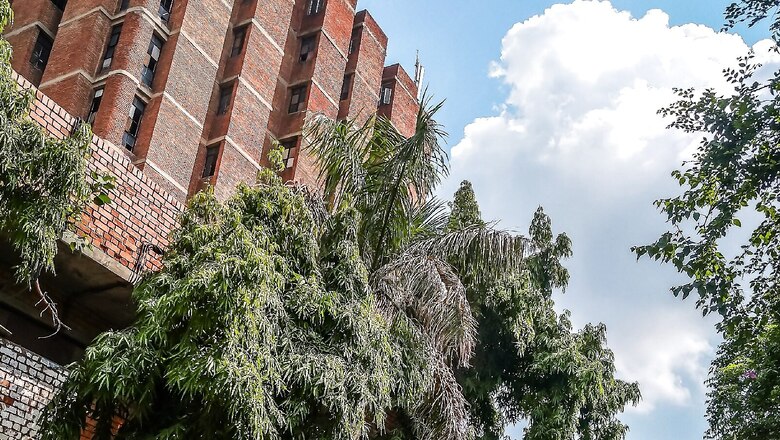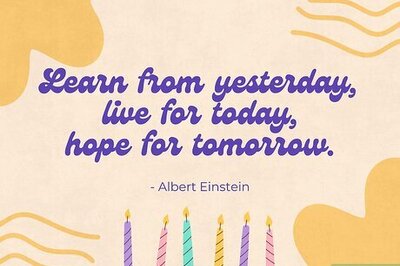
views
Delhi University will admit 20 per cent “extra students” under unreserved and OBC categories and 30 per cent in the SC/ST category to fill the maximum seats in undergraduate courses in the first round of counselling this year, Vice Chancellor Yogesh Singh said on Thursday. This will also help in filling the reserved seats which remain vacant throughout the year, Singh told PTI.
This year, the university will be offering 70,000 seats in undergraduate programmes across several colleges through the new Common University Entrance Test (CUET). Till last year, the university would release cut-offs based on the class 12 scores of students. The CUET-UG, will be conducted by the National Testing Agency (NTA) from July 15 to August 10. The CUET (UG) 2022 has been scheduled for around 14,90,000 candidates, according to the National Testing Agency.
Over 6.5 lakh admission applications have been received by the university, according to DU officials. In an interview to PTI, Singh said rules and regulations have been framed for counselling.
“In order to fill the maximum seats in the first round itself in UR (unreserved) and OBC (other backward classes) categories, we will take 20 per cent extra admissions and in the SC/ST category, 30 per cent extra admission will be done,” he said. “With this, maximum students will get their choice (of course and college) in the first round as every year, seats in the SC/ST category remain vacant. This will also help in filling the reserved seats early on,” he added.
The shortfall in the enrolment of SC/ST students in the university has been a cause of concern for the varsity for quite a long time. Early this year, the DU vice chancellor had also constituted an eight-member committee to examine the issue.
“The committee has recommended that the maximum admissions under the reserved categories should be done as early as possible,” he said. “The admission process is quite lengthy and students of reserved category take admission in another college while waiting for several days for the DU cutoff to come down,” he added.
Explaining the process of counselling devised by the varsity, the vice chancellor said students will have to make known their preferences again on the university admission portal. “CUET scores would be subject-wise and as the eligibility is different for every course, a combination of subjects will be required. For example, if I want admission in BSc (Hons) Physics, marks of physics, chemistry, and maths will be added up to prepare merit. We have already defined what will be the eligiblity of what subjects,” he said.
“We have a central portal (for admission), the data regarding the marks of the students will be made available by the NTA and then the students will fill their preferences. We will then fill up the seats. If those who get their first choice are happy, they can freeze their seats,” he added. If the applicant is not satisfied with their course, they can wait for the second round, the VC said.
“We will give students many options in between rounds if they want to switch their course or college,” said Singh. In the case of two students with the same CUET score choosing the same college and course as first preference, their class 12 board marks will act as a tiebreaker for allotment of preferred seat, informed the vice chancellor.
“In case of a tie between two students, the scores of best of three subjects will be compared. If the best three are also the same, then the best four will be compared and then the best five. “If by chance marks for the best five subjects are also same, in that case, age will act as a tie breaker. The older applicant will get the seat,” he said.
Read all the Latest News, Breaking News, watch Top Videos and Live TV here.




















Comments
0 comment